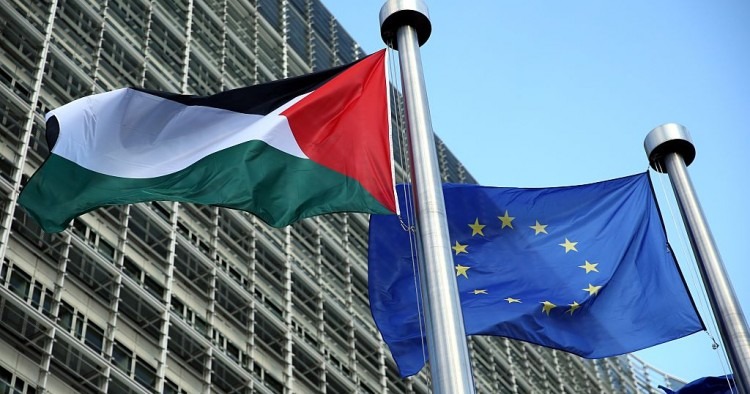In a move drawing sharp reactions from both ends of the spectrum, the European Union has chosen not to pursue any of its 10 proposed actions against Israel over its conduct in Gaza, opting instead to “keep them on the table” without enforcement.
Following the EU-Israel Association Council in Brussels this week, EU foreign policy chief Kaja Kallas shook hands with Israeli Foreign Minister Gideon Sa’ar, highlighting the bloc’s decision to stall sanctions. Sa’ar lauded the outcome on X, calling it “a diplomatic feat” that prevented what he termed an “attack on Israel…and the EU itself.”
Palestinian Foreign Minister Varsen Aghabekian‑Shahin fired back, describing the move as “shocking and disappointing.” He reiterated that the EU’s own report highlighted 38 violations of human rights in Gaza and emphasized that violence—“killings, atrocities, war crimes”—continues even after agreements were reached to boost humanitarian aid.
EU Dissension: Who’s Speaking Out?
Several EU countries have been especially vocal in pressing for tougher measures against Israel:
- Ireland, represented by Foreign Minister Thomas Byrne, emphasized that the aid deal remains “insufficient,” citing continued “slaughter” and restricted food and water supplies. He pledged that Kallas would provide biweekly updates on humanitarian access to Gaza.
- Spain has taken a leading stance. Foreign Minister José Manuel Albares urged that the agreement “is not the end—we must stop the war.” Spanish PM Pedro Sánchez labeled Israel “genocidal,” secured a national arms embargo and pledged to pursue recognition of a Palestinian state.
- A coalition of nine EU countries—Belgium, Finland, Ireland, Luxembourg, Poland, Portugal, Slovenia, Spain, and Sweden—signed a letter urging a reassessment of trade with Israeli settlements, citing the ICJ’s advisory opinion on their illegality.
- Belgium’s Foreign Minister Maxime Prévot pressed the EU Commission to align trade policy with moral and legal responsibilities. Belgium is also contemplating formal recognition of Palestine.
- Netherlands’ Foreign Minister Caspar Veldkamp emphasized that public pressure had driven the humanitarian aid agreement and stressed the need to “maintain” that collective EU force.
- Sweden’s Foreign Minister Maria Malmer Stenergard argued that now was the time to exert pressure to allow humanitarian aid access.
Despite these calls, a lack of unity has stalled movement. Key EU members—Germany, Italy, Hungary, Czechia, and others—have blocked both agreement suspensions and sanctions, citing legal or political objections.
What’s Next?
The EU had previously launched a formal review of its Association Agreement with Israel—intended to strengthen ties—to investigate breaches related to Gaza’s humanitarian situation. This review confirmed “indications” that Israel violated its human rights obligations, particularly through access restrictions to humanitarian aid.
Yet for now, the bloc’s 10 diplomatic and economic “options” remain idle. Kallas insists all are still “on the table” and that she will report on progress regularly—but she provided no concrete timeline for action.
Humanitarian Aid: A Fragile Deal
In Brussels, EU ministers backed a deal to increase humanitarian aid into Gaza—including food, fuel, and medical provisions. Some improvement has been reported: trucks are entering and power lines partially operating. However, access remains seriously constrained, and UN and EU officials continue to call for a ceasefire to ensure delivery teams can reach civilians safely.
Critics from Amnesty International and Oxfam have labeled the EU’s stance “cowardice” and a “betrayal” of fundamental values. Amnesty head Agnès Callamard warned that continued inaction may make the bloc complicit in atrocities.
🔍 Inside the EU’s Gaza Violations Report: 38 Breaches of International Law
While the EU has refrained from taking punitive action, its own internal review presents a damning picture of Israeli conduct in Gaza.
Compiled by the European External Action Service (EEAS), the report—circulated among all 27 EU foreign ministers in early July—identified 38 specific violations of international humanitarian and human rights law. These findings stemmed from field data, satellite imagery, NGO reports, and diplomatic assessments, painting a picture of systematic abuse and disregard for civilian protections.
Key violations outlined in the report include:
- Deliberate obstruction of humanitarian aid, including fuel, medical supplies, and food—in contravention of Israel’s legal obligations under the EU-Israel Association Agreement.
- Indiscriminate bombing of civilian areas, with no discernible military targets, leading to mass casualties among women and children.
- Targeting of civilian infrastructure, including water facilities, hospitals, refugee shelters, and schools—many of which had been deconflicted through international coordination channels.
- Documented instances of collective punishment, as Israeli authorities imposed full siege conditions on Gaza, depriving 2.2 million residents of electricity, water, and medical care.
- Killings of journalists and aid workers, which the report called “consistent with a wider pattern of obstruction and impunity.”
Notably, the report concluded that Israel’s actions had “likely breached Article 2” of the EU-Israel Association Agreement, which defines respect for human rights as an essential condition of partnership.
Yet despite this language—and the political weight behind the findings—the EU has taken no formal steps to enforce the agreement.
A senior EU official, speaking anonymously, described the report as “an airtight case” that was “deliberately ignored for political reasons.”
“The diplomatic implications are severe. The EU acknowledged breaches of its own treaty and has chosen silence. That’s not neutrality—that’s complicity,” said the official.
The report has since been cited by human rights groups, legal scholars, and several EU parliamentarians demanding immediate suspension of the agreement with Israel. But for now, the document remains politically explosive—and diplomatically inert.
While the EU continues to project itself as a neutral broker committed to peace, this week’s events reinforced the perception that political divisions within the bloc—and a desire to maintain ties with Israel—are preventing meaningful action.



